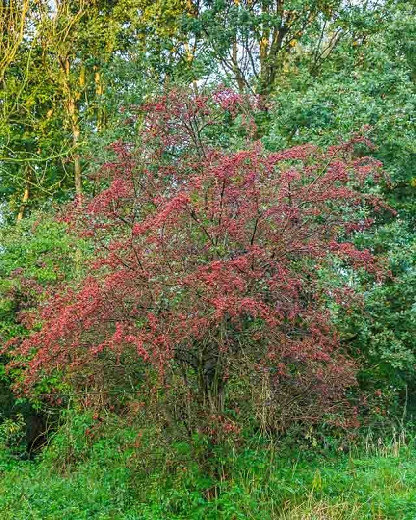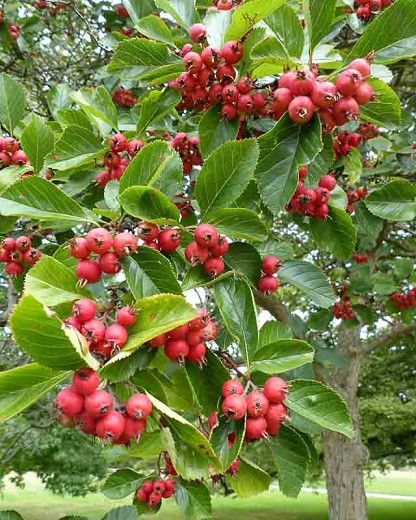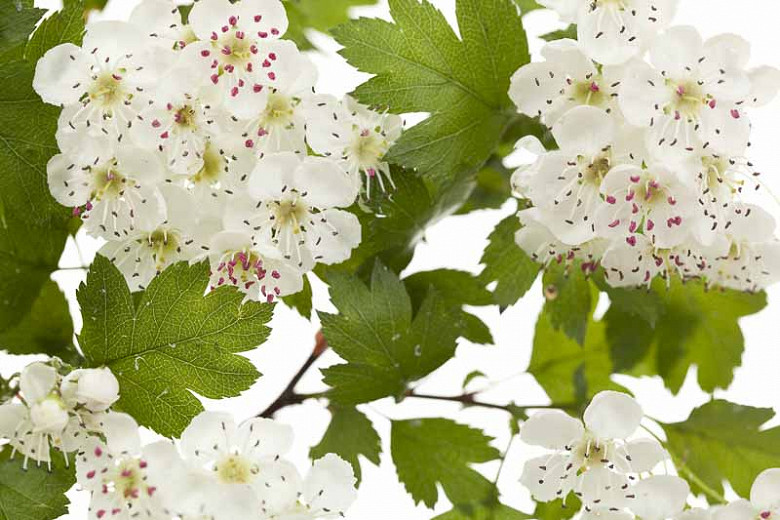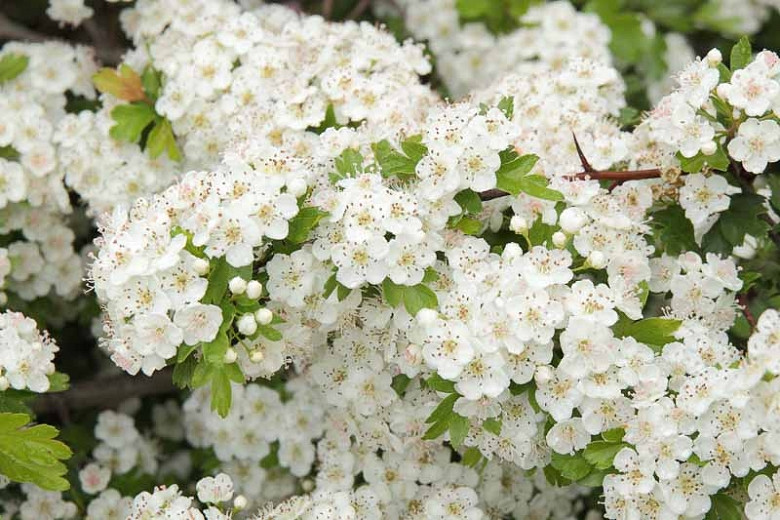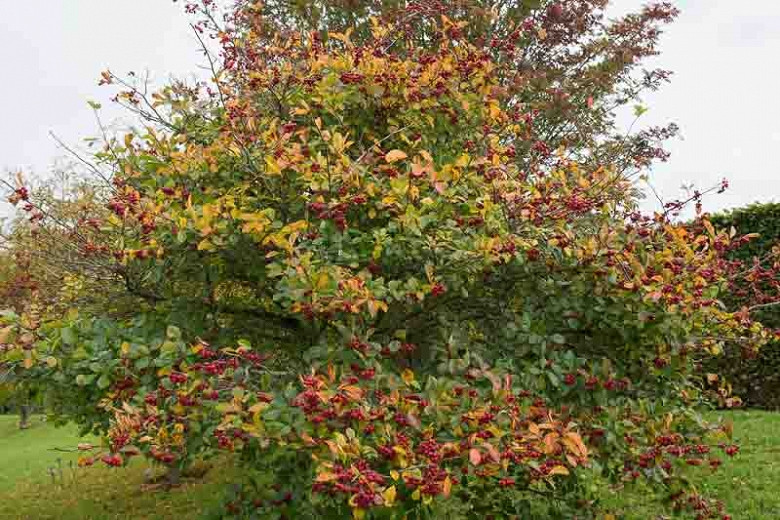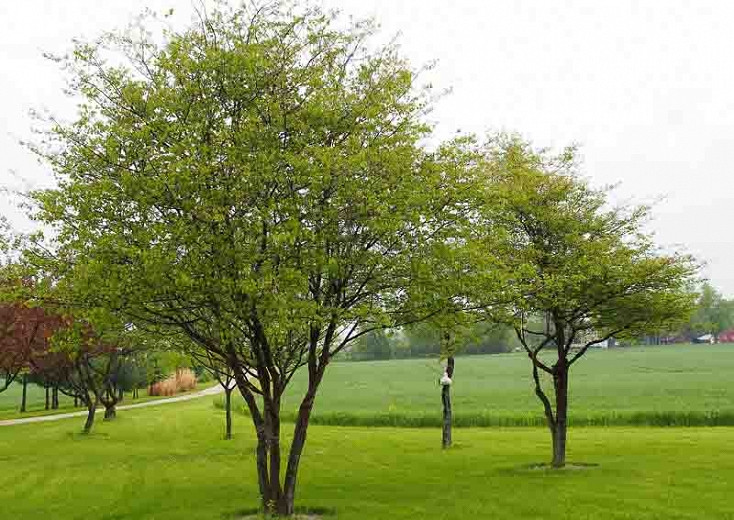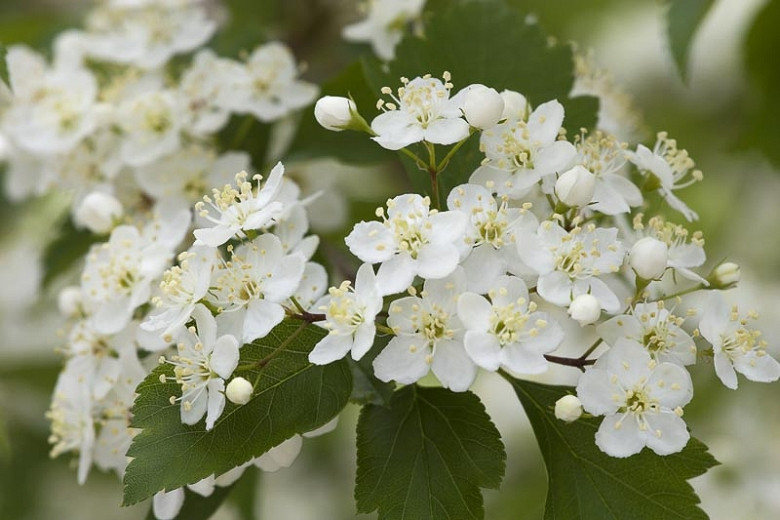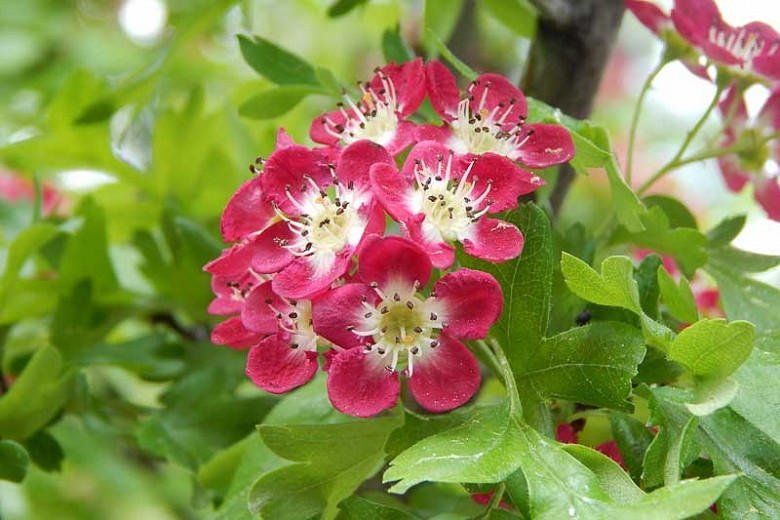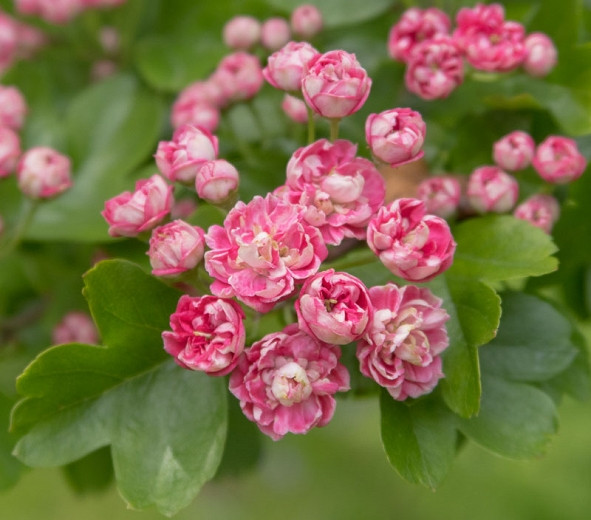Crataegus crus-galli (Cockspur Hawthorn)
Crataegus crus-galli (Cockspur Hawthorn) forms a dense, low-branched, broad-rounded, deciduous tree adorned with horizontal, wide-spreading branches armed with 1-3 in. long thorns (2-7 cm). They are clothed with lustrous, smooth-textured, tooth-edged, dark green leaves. In late spring, a profusion of unpleasantly scented, white flowers held in clusters (corymbs) provide a spectacular spring floral display for 7-10 days. The blossoms are followed by deep red fruits in fall that usually persist on the tree until winter. Edible, they can be harvested to make jelly or left for the hungry birds. The foliage turns attractive shades of bronze-red to purplish-red before shedding to the ground. Common and widespread, Cockspur Hawthorn has been planted for ornament and as a hedge since colonial times. Great in mass plantings, screens, groupings, or as a general barrier. Cockspur Hawthorn supports a variety of bees, attracts songbirds and is a host plant for over 25 species of moths.
- Grows up to 25-35 ft. tall and wide (7-11 m).
- A full sun lover, this tree is easily grown in medium moisture, well-drained soils. Prefers moist, well-drained, slightly acid soils, and full sunlight. It is adaptable to poor soils, dry soils, various soil pHs, compacted soils, drought, heat and winter salt spray.
- Perfect as a specimen tree for cottage gardens or city gardens as it is tolerant of urban pollution.
- Requires only minimal pruning in late winter or early spring, to remove damaged, diseased or misplaced growth.
- Keep an eye out for caterpillars, gall mites, aphids, leaf spots and fireblight.
- Propagate by budding in mid-summer or grafting in winter
- Native from Quebec to North Carolina and Kansas.
Requirements
| Hardiness | 4 – 7 |
|---|---|
| Heat Zones | 1 – 7 |
| Climate Zones | 1, 1A, 1B, 2, 2A, 2B, 3, 3A, 3B, 4, 5, 6, 7, 8, 9, 10, 11, 12, 14, 15, 16, 17 |
| Plant Type | Trees |
| Plant Family | Crataegus – Hawthorns |
| Exposure | Full Sun |
| Season of Interest | Spring (Late)FallWinter |
| Height | 25' – 35' (7.5m – 10.5m) |
| Spread | 25' – 35' (7.5m – 10.5m) |
| Water Needs | Average |
| Maintenance | Average |
| Soil Type | Chalk, Clay, Loam, Sand |
| Soil pH | Acid, Alkaline, Neutral |
| Soil Drainage | Moist but Well-Drained, Well-Drained |
| Characteristics | Showy, Fruit & Berries |
| Native Plants | United States, Midwest, Illinois, Indiana, Iowa, Kansas, Michigan, Minnesota, Missouri, Ohio, Wisconsin, Northeast, Connecticut, Delaware, Maine, Massachusetts, Maryland, New Jersey, New York, Pennsylvania, Rhode Island, Vermont, Southeast, Alabama, Arkansas, Florida, Georgia, Kentucky, Louisiana, Mississippi, North Carolina, South Carolina, Tennessee, Virginia, West Virginia, Southwest, Oklahoma, Texas |
| Tolerance | Clay Soil, Drought, Dry Soil |
| Attracts | Bees, Birds, Butterflies |
| Garden Uses | Hedges and Screens |
| Garden Styles | City and Courtyard, Informal and Cottage, Prairie and Meadow |
